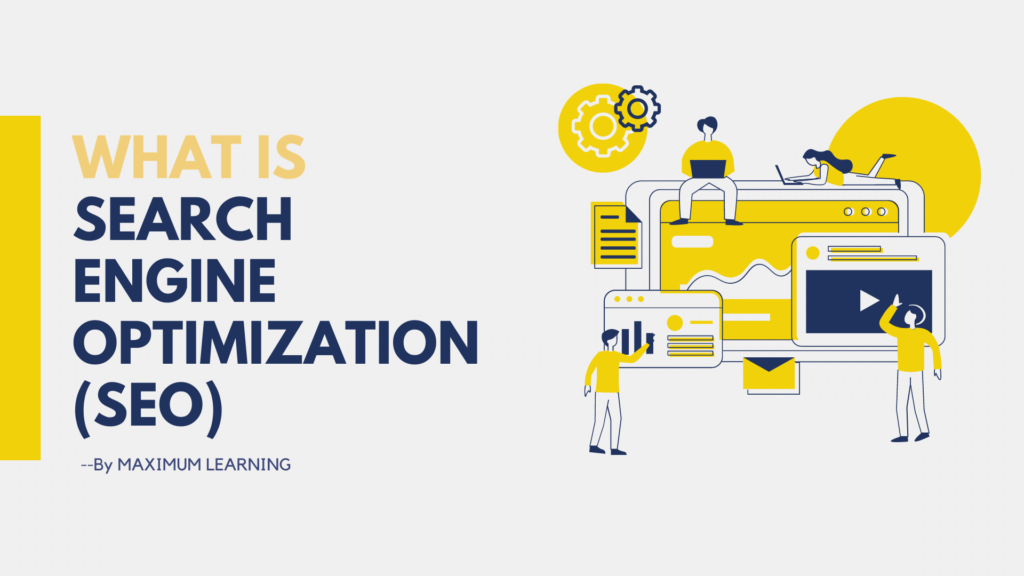In the ever-evolving landscape of digital marketing, staying abreast of Google’s algorithm updates is crucial for SEO practitioners. Google continuously refines its algorithms to provide users with the most relevant and high-quality search results. This blog aims to demystify some of the key algorithm updates and their impact on SEO, including Panda, Penguin, Exact Match Domain (EMD), Hummingbird, Pigeon, Mobile Update, RankBrain, Medic, BERT, Page Experience Update, and the importance of crafting helpful content.
Panda: Taming Thin Content
Google Panda, rolled out in 2011, is an algorithm designed to refine search results by identifying and penalizing websites with low-quality or thin content. Thin content refers to pages that lack substantial information, depth, or relevance to users. Panda aims to enhance the overall quality of search results by promoting websites that provide valuable and engaging content.
To align with Panda’s principles and ensure your website isn’t adversely affected, it’s crucial to prioritize the creation of high-quality, original, and comprehensive content.
Ensuring effective search engine optimization, particularly in the context of Google’s Panda algorithm, requires a dedicated focus on high-quality content. This involves strategic investments in well-researched, accurate, and value-driven material that captivates and encourages longer dwell times. It is crucial to steer clear of duplicate or plagiarized content, as Panda penalizes websites for such practices.
Crafting content with a clear and accessible writing style enhances readability, ensuring users can easily comprehend and engage. Emphasizing originality and uniqueness, while avoiding content recycling across different pages, contributes to a robust online presence. Prioritizing comprehensive coverage over quantity aligns with Panda’s guidelines, enhancing a site’s authority for both users and search engines. Regular content audits play a pivotal role in maintaining quality, relevance, and accuracy, ensuring sustained visibility and positive user experiences over time.
Penguin: Combatting Unnatural Link Building
Google Penguin, introduced in 2012, is an algorithm update designed to address the issue of unnatural and manipulative link-building practices. Its primary objective is to ensure that websites are rewarded for authentic and high-quality backlinks while penalizing those resorting to unethical tactics to manipulate search engine rankings.
Google’s Penguin algorithm specifically targets unnatural link-building practices, such as buying links, engaging in link schemes, and manipulative tactics that artificially boost a website’s backlink profile. Emphasizing quality over quantity, Penguin encourages the acquisition of backlinks from authoritative and relevant sources, prioritizing contextually relevant links related to the website’s content. Diverse link profiles from reputable websites, blogs, social media, and industry-specific directories are favored.
Websites employing manipulative link-building techniques risk penalties, including a drop in rankings or potential deindexing. To mitigate these risks, regular link audits and the disavowing of harmful links are recommended. Penguin underscores the importance of earning backlinks naturally through valuable content creation, positive user experiences, and genuine community engagement. Additionally, the algorithm considers anchor text optimization, urging a diverse and natural use of anchor text that aligns with the linked page’s content, while cautioning against over-optimization with exact-match anchor text.
Exact Match Domain (EMD): Striking a Balance
Exact Match Domain (EMD) updates, implemented by Google, focus on preventing websites from exploiting the use of keyword-rich domain names to gain undue ranking advantages. While having a domain name that matches a relevant keyword or search query can be beneficial, the emphasis should be on maintaining a balance between a descriptive domain and the delivery of quality content, along with ensuring a positive user experience.
Keyword-rich domain names, known as Exact Match Domains (EMD), once held a perceived advantage in search rankings, aligning closely with specific keywords. However, updates aimed at preventing the exploitation of this advantage underscore the need for a balanced approach. While having a domain name reflecting content remains beneficial, the emphasis has shifted to quality content that meets user expectations and aligns with search intent.
In the contemporary SEO landscape, a user-focused strategy goes beyond keyword-rich domains, incorporating diverse elements such as high-quality content, user-friendly design, mobile optimization, and ethical link-building practices. Google’s evolving algorithms prioritize user experience, necessitating that content not only aligns with the chosen domain but also delivers informative and positive experiences. Adaptability to algorithm changes is crucial for sustained success, and incorporating branding elements into domain names enhances memorability, contributing to an overall website identity that resonates with users. Staying informed about updates, particularly those related to EMD, ensures ongoing compliance and optimal performance in search results.
Hummingbird: Semantic Search and User Intent
Google Hummingbird, launched in 2013, represents a significant advancement in search engine algorithms, emphasizing semantic search and a deeper understanding of user intent. This update reflects Google’s commitment to providing more relevant and contextually accurate search results. To align with Hummingbird, it’s crucial to focus on creating content that not only answers specific queries but also addresses the broader context and intent behind those queries.
Keyword-rich domain names, known as Exact Match Domains (EMD), once held a perceived advantage in search rankings, aligning closely with specific keywords. However, updates aimed at preventing the exploitation of this advantage underscore the need for a balanced approach. While having a domain name reflecting content remains beneficial, the emphasis has shifted to quality content that meets user expectations and aligns with search intent. In the contemporary SEO landscape, a user-focused strategy goes beyond keyword-rich domains, incorporating diverse elements such as high-quality content, user-friendly design, mobile optimization, and ethical link-building practices.
Google’s evolving algorithms prioritize user experience, necessitating that content not only aligns with the chosen domain but also delivers informative and positive experiences. Adaptability to algorithm changes is crucial for sustained success, and incorporating branding elements into domain names enhances memorability, contributing to an overall website identity that resonates with users. Staying informed about updates, particularly those related to EMD, ensures ongoing compliance and optimal performance in search results.
Pigeon: Local Search Optimization
Introduced in 2014, Google’s Pigeon algorithm has a significant impact on local search results, making it a pivotal element for businesses with a regional focus. Pigeon places a strong emphasis on local search engine optimization (SEO) factors, urging businesses to pay careful attention to the accuracy of their business information and the quality of local backlinks. Accurate and up-to-date business details, including address, phone number, and business hours, play a crucial role in Pigeon’s evaluation, helping businesses surface prominently in local search queries.
Additionally, the algorithm values the acquisition of high-quality local backlinks, emphasizing the importance of building relationships within the local community. For businesses aiming to connect with local audiences, optimizing for Pigeon is not just beneficial but imperative. By aligning with Pigeon’s guidelines, businesses can enhance their visibility in local search results, ensuring that they are prominently featured when users in their area seek relevant products or services.
Mobile Update: Mobile-Friendly Matters
In 2015, Google’s Mobile Update marked a significant shift in search engine rankings by prioritizing mobile-friendly websites in mobile search results. This update underscored the increasing importance of mobile optimization in the realm of SEO. With the prevalence of smartphones and the growing number of users accessing the internet via mobile devices, ensuring a seamless and responsive mobile experience has become a critical aspect of online visibility. Websites that failed to cater to mobile users and lacked mobile-friendly designs faced the risk of experiencing a decline in their search engine rankings.
The Mobile Update prompted a fundamental change in the way websites were evaluated, considering factors such as mobile responsiveness, page load speed on mobile devices, and overall user experience on smaller screens. As a result, businesses and website owners needed to prioritize mobile optimization to not only maintain their rankings but also to meet the evolving expectations of users who increasingly rely on mobile devices for their online activities.
RankBrain: Machine Learning in Search
Launched in 2015, RankBrain is an innovative machine-learning component integrated into Google’s search algorithm. Unlike traditional algorithms that rely on pre-established rules, RankBrain employs artificial intelligence to interpret intricate and ambiguous search queries. Its primary function is to enhance the relevance of search results by deciphering the underlying intent behind user queries. As users increasingly use conversational and nuanced language in their searches, RankBrain adapts and learns from these patterns, enabling it to provide more contextually accurate and personalized results.
To optimize for RankBrain, a crucial strategy involves understanding user behavior and delivering valuable, user-centric content. This includes creating comprehensive and relevant content that aligns with the diverse interpretations of complex queries. By focusing on providing a positive user experience and addressing the evolving nuances of search queries, websites can effectively optimize for RankBrain and improve their visibility in search engine results pages.
Medic: E-A-T and Your Money or Your Life (YMYL) Content
The Medic update, unveiled by Google in 2018, marked a significant algorithmic shift by prioritizing E-A-T, which stands for Expertise, Authoritativeness, and Trustworthiness, particularly impacting content falling under the category of Your Money or Your Life (YMYL). YMYL content encompasses subjects that have a direct impact on users’ well-being, finances, or life decisions, such as health, finance, and legal topics. The update aimed to ensure that websites providing information in these critical areas met higher standards of credibility and reliability.
To align with the Medic update, websites operating in health, finance, and related niches should prioritize E-A-T principles. This involves demonstrating expertise in the field, establishing authoritativeness by showcasing credentials, and building trustworthiness through transparent and reliable content. Implementing these principles not only aligns with Google’s algorithms but also reinforces the website’s credibility, instilling confidence in users seeking trustworthy information in sensitive areas of their lives. By prioritizing E-A-T, websites can navigate the impact of the Medic update and contribute to a more reliable and authoritative online landscape, particularly for YMYL content.
BERT: Natural Language Processing
Introduced by Google in 2019, BERT (Bidirectional Encoder Representations from Transformers) is a revolutionary natural language processing (NLP) model designed to enhance the understanding of context in search queries. Unlike previous algorithms, BERT is bidirectional, allowing it to consider the entire context of a word by looking at both its preceding and succeeding words. This empowers BERT to better comprehend the nuances and intricacies of user queries, especially those that involve prepositions, conjunctions, and other contextual elements. To align with BERT’s objectives, content creators should focus on crafting material that answers user queries in a natural and conversational manner.
Instead of rigidly targeting specific keywords, the emphasis should be on providing comprehensive and contextually relevant information. BERT rewards content that mirrors the way people naturally speak and inquire, rewarding websites that prioritize user-friendly and contextually rich content. By understanding and adapting to BERT’s capabilities, content creators can optimize their material to meet the evolving expectations of search engines, providing users with more accurate and satisfying search results.
Page Experience Update: Core Web Vitals Matter
Scheduled for 2021, the Page Experience Update is a significant Google algorithm update that places a heightened focus on Core Web Vitals, comprising loading performance, interactivity, and visual stability. Core Web Vitals are essential metrics that gauge the overall user experience on a webpage, reflecting factors like page load speed, responsiveness to user interactions, and the stability of page elements during loading. Websites that prioritize and optimize these Core Web Vitals are expected to offer users a more seamless and enjoyable browsing experience.
The update signals a shift towards prioritizing user satisfaction and engagement, as websites that excel in these vital areas are likely to receive favorable rankings on search engine results pages. By optimizing loading times, ensuring smooth interactivity, and minimizing visual disruptions, website owners can not only comply with the Page Experience Update but also contribute to a positive and user-friendly online environment. This update aligns with the broader trend in search engine algorithms, where user-centric factors play a pivotal role in determining a website’s visibility and success in search results.
Crafting Helpful Content: The SEO Constant
In the dynamic landscape of SEO, one constant that withstands algorithmic changes is the importance of crafting helpful content. Despite the evolving nature of Google’s algorithms, the fundamental goal remains centered on prioritizing content that effectively serves user intent, offers valuable information, and contributes to a positive user experience. Search engines increasingly emphasize the significance of content that aligns with user needs and expectations.
Regularly updating and enhancing content becomes crucial in this context, ensuring its ongoing relevance and value over time. By consistently refining and expanding content to address emerging trends, user queries, and industry developments, websites can demonstrate their commitment to providing up-to-date and insightful information. This user-centric approach not only aligns with the objectives of search engine algorithms but also fosters user trust, engagement, and loyalty, contributing to sustained success in the ever-evolving landscape of SEO.
Conclusion
In the intricate landscape of Google’s algorithms, successful navigation demands adaptability, ethical practices, and an unwavering commitment to user satisfaction. As businesses embrace these foundational principles, they not only ensure their survival but also position themselves to thrive in the dynamic realm of search engine optimization (SEO). The journey into Google’s algorithmic jungle can be likened to wielding a compass, offering direction and guidance for businesses aiming for sustainable SEO success.
The emphasis on ethical practices underscores the importance of transparency, authenticity, and credibility, aligning businesses with the evolving expectations of search engines and users alike. By prioritizing user-centric strategies, such as creating valuable content, optimizing for positive user experiences, and staying attuned to shifting user behaviors, businesses not only weather algorithmic changes but also flourish in the digital wilderness. This approach not only boosts search engine rankings but fosters trust, engagement, and long-term success, ensuring that businesses not only adapt to the ever-changing SEO landscape but emerge as leaders in their digital domains.




